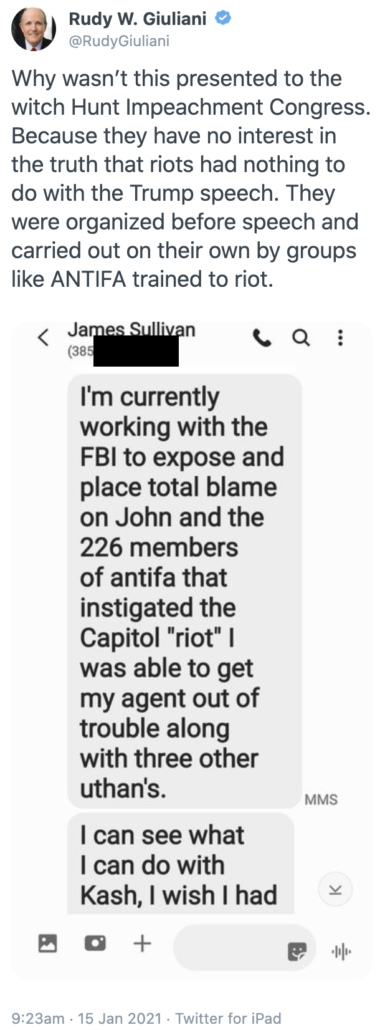Rudy Giuliani’s Going To Go Through Some Things
The NYT is breaking the news that Rudy Giuliani’s home was searched this morning and his devices seized.
Federal investigators in Manhattan executed a search warrant on Wednesday at the Upper East Side apartment of Rudolph W. Giuliani, the former New York City mayor who became President Donald J. Trump’s personal lawyer, stepping up a criminal investigation into Mr. Giuliani’s dealings in Ukraine, three people with knowledge of the matter said.
One of the people said the investigators had seized Mr. Giuliani’s electronic devices.
The story explains that this arises out of the investigation into Rudy’s foreign influence peddling with Ukraine.
The federal authorities have been largely focused on whether Mr. Giuliani illegally lobbied the Trump administration in 2019 on behalf of Ukrainian officials and oligarchs, who at the same time were helping Mr. Giuliani search for dirt on Mr. Trump’s political rivals, including President Biden, who was then a leading candidate for the Democratic presidential nomination.
The NYT doesn’t mention that several of these Ukrainians have since been sanctioned by Treasury as Russian agents.
But once they get Rudy’s phones, there’s the possibility they’ll find evidence of all Rudy’s other crimes. For example, in January, Rudy was in contact with James Sullivan, who is the brother of accused January 6 insurrectionist John Sullivan and who himself has ties to the Proud Boys.
This is a lot of information exchange (and a good degree of familiarity) with someone so closely tied to an attack on the Capitol.
So who knows? It might all coalesce: Rudy’s work for Russian Agents in Ukraine to undermine democracy, paving the way for a violent attack on the Capitol.
Update: They searched Victoria Toensing’s home too.
F.B.I. agents on Wednesday morning also executed a search warrant at the Washington-area home of Victoria Toensing, a lawyer close to Mr. Giuliani who had dealings with several Ukrainians involved in the effort to find damaging information about the Bidens, according to people with knowledge of that search. Ms. Toensing has represented Dmitry Firtash, a Ukrainian oligarch under indictment in the United States whose help Mr. Giuliani sought.
Update: Fixed the timing of the search. h/t JM.
